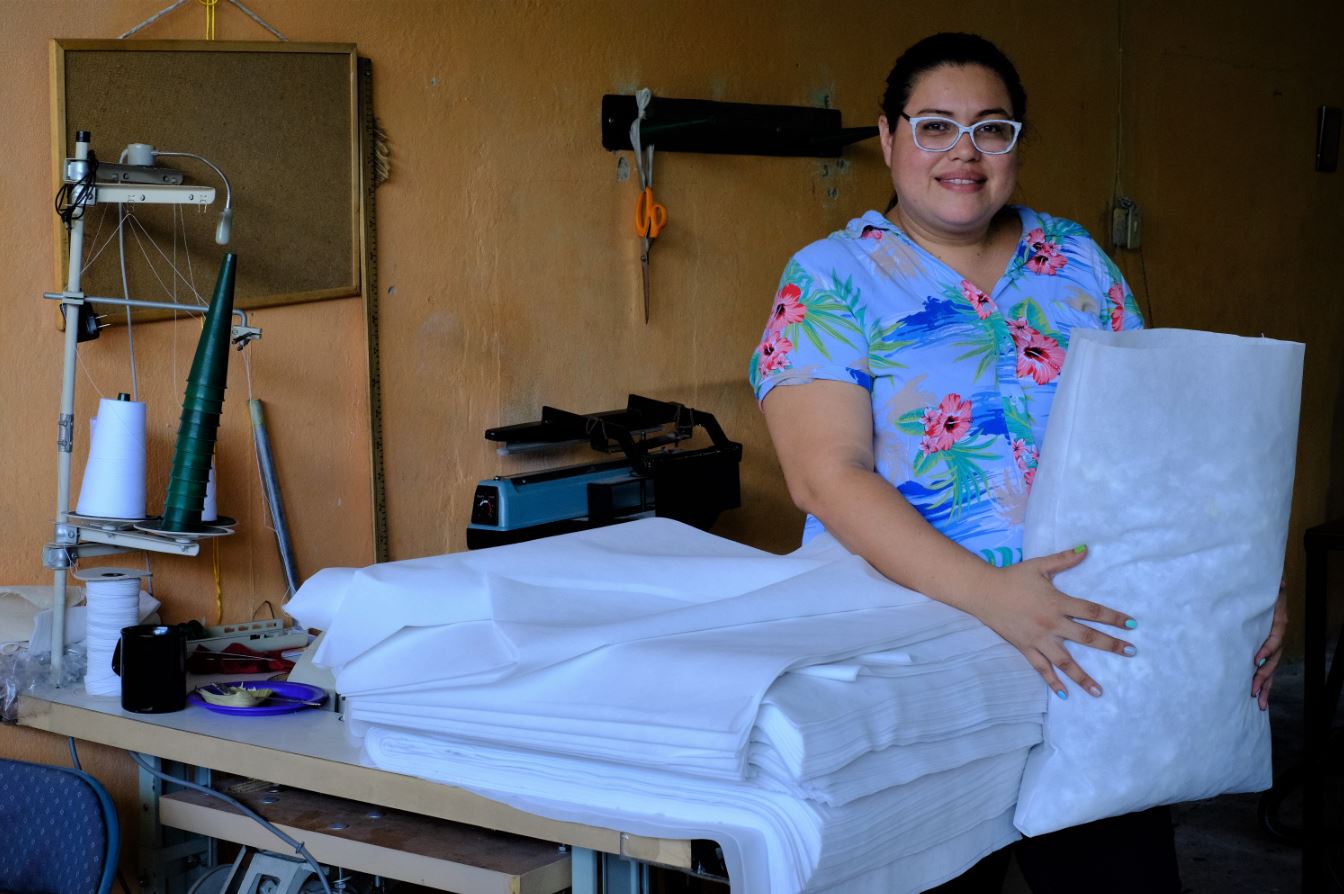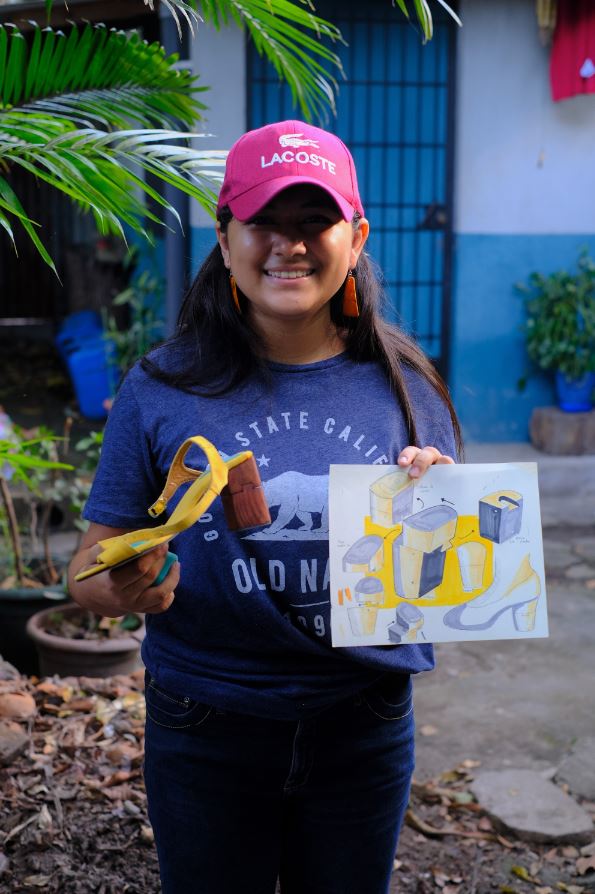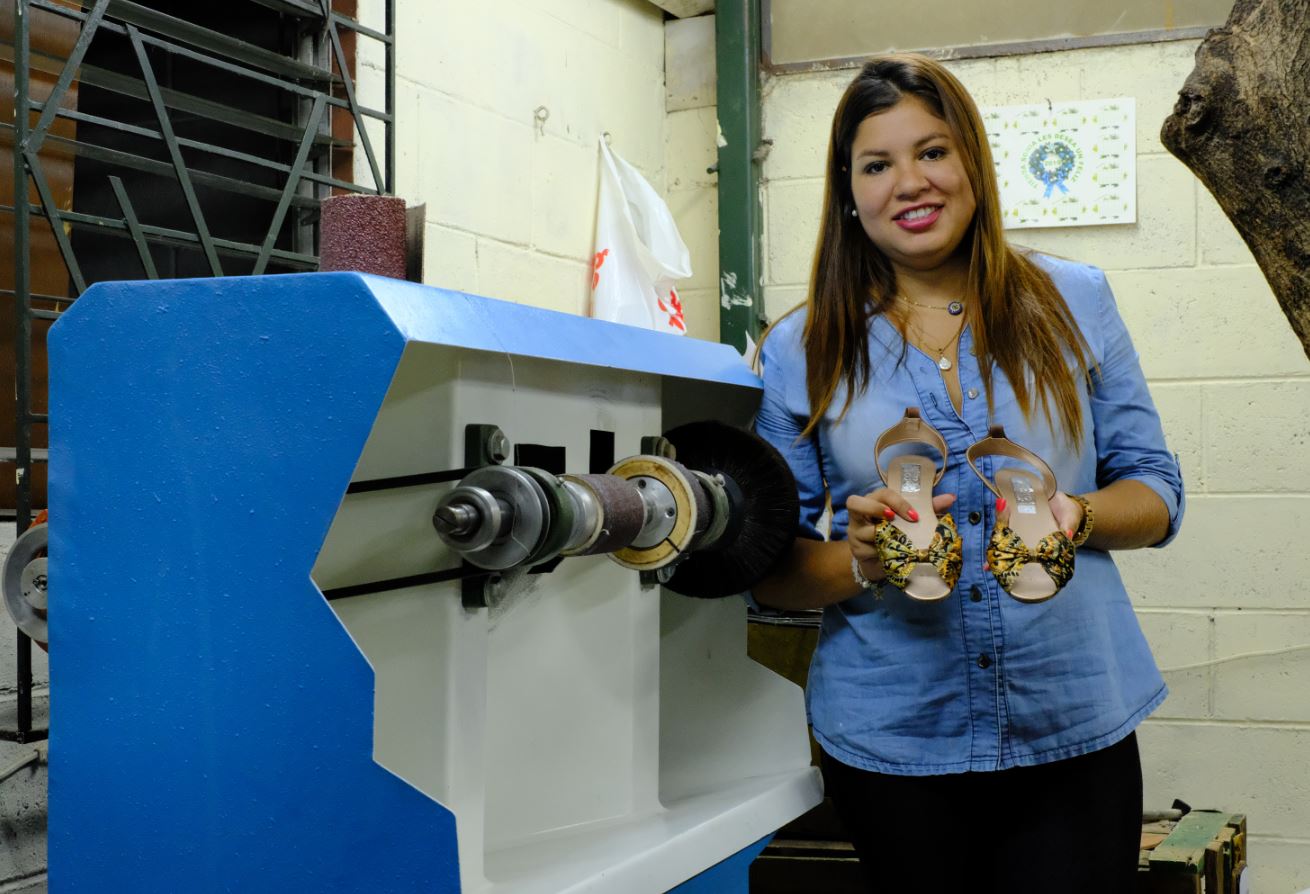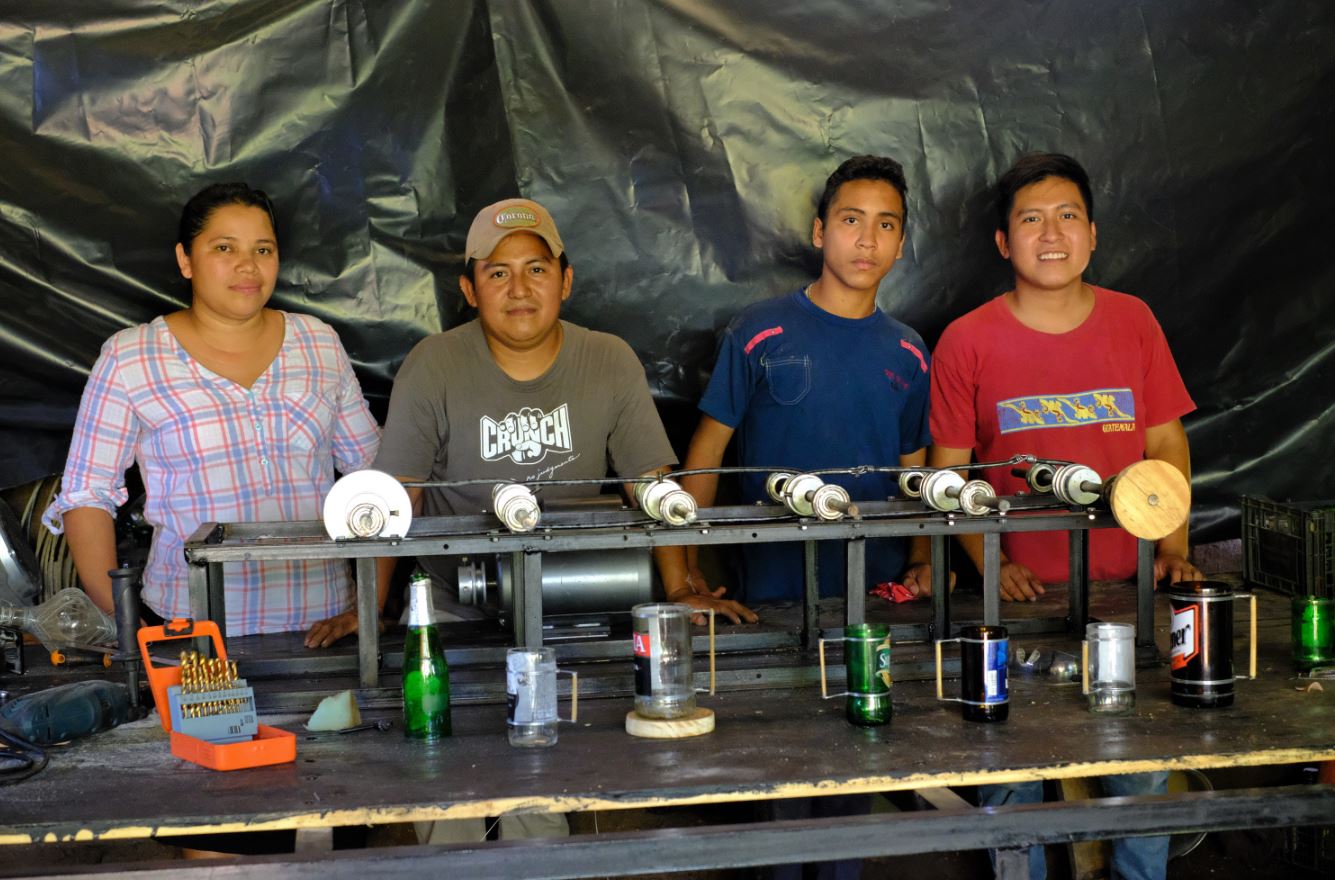ADA supports the empowerment of women entrepreneurs in El Salvador!
At the beginning of October, the two finalists from the circular economy sector, accompanied by INSERT/Yawal, presented in "De Tacos, sueños y botellas", were selected. After presenting their respective prototypes, Switzerland Mendoza (Complementos de Descanso) and Kenya Alvarado (Thewoodsoul) were chosen to carry out the incubation process offered by Yawal and funded by ADA.
The 4 finalists of the meeting on circular economy organised by INSERT/Yawal in El Salvador and co-financed by ADA complete the prototyping phase
October 2019




"About heels, dreams and bottles"
At first there are 100. Five years after shedding blood, sweat, and tears, more than 50 are already dead. And 10 years after the beginning of the adventure, only 25 remain alive. We call them micro-enterprises, small businesses; they are MSEs. We could summarise their lives in El Salvador in this way, where about 65% of the existing 317,000 MSEs disappear within the first 10 years of their lives, especially during the first five years[1]. Behind these acronyms that are so fashionable, MSEs represent a path littered with obstacles from which few people emerge unscathed, especially if you are only 20 years old and you are a woman, as this group represents only 0.67% of the country's entrepreneurs[2]. Kenya Martinez belongs to this category, but because this is her second business, she is not afraid to step into the arena. This young student decided to launch "Woodsol”, supported by the circular economy incubation programme organised earlier this year by INSERT/Yawal. Before attending the information sessions, she had never heard about a circular economy, but at that moment, she knew that her idea of creating a shoe with a removable heel made of recycled wood fit perfectly with the concept. Her invention would allow women, like her lawyer mother, to wear high heels all day long without suffering, because they could change the height of the heel as they wished. Travelling by bus: a 5-centimetre heel. Work meeting: an 8-cm heel. Her invention would also enable the recovery of unused wood from packing pallets to make this innovative removable heel and thus reduce the consumption of raw materials from the planet. Today, thanks to the funding of 2,500 USD from ADA, Kenya has developed various prototypes in collaboration with a local carpenter and shoemaker. She is ready for the first users to test the shoes that she invented and collect the necessary feedback to launch the first production.
Kenya is not the only entrepreneur with the name of a distant country to have decided to innovate in the circular economy sector. Suiza[3] Mendoza, a 31-year-old communications specialist, realised that her pillow-making business fits very well with the concept. In fact, Suiza has forged a partnership with the Capri mattress company, thanks to whom she collects the remains of its production every week and makes pillows with it. Some of the pillows are sold to the same company Capri, which offers them as a gift to its customers, and another part is sold by Suiza's husband in his store in San Salvador under the name of his own brand "Sueñolandia". As she says, she could have continued to produce the same type of pillows as usual and thus live a quiet life. But Suiza, inspired by the name of her company, decided to dream and diversify her manufacturing, by developing, thanks to the INSERT/Yawal funding project, two prototype pillows. The first prototype features a pillow with dried coconut fibres as filling material. For that, Suiza recovers the remains of the coconuts for free from the city's countless street vendors of coconut water. Then she dries the fibre in a sieve of her own design. The second prototype is a model of pillow inspired by aromatherapy, which enables the user to integrate sachets of dried herbs having medicinal and relaxing qualities inside the pillow. Currently, Suiza uses the same hand-crafted dryer to dry the coconut fibre and herbs, such as chamomile and mint, among others. However, she is already planning the addition of a solar dryer in the future, to increase the production of filling materials for these unique pillows. The 3 employees of her workshop will be busy during the next months.
In a country where more than 61% of MSE owners of all ages are women[4], it is not surprising that the third company chosen by INSERT/Yawal to participate in the pre-incubation programme is also run by a woman. “Coca Canela” is already a small handmade shoe company, well established in the El Salvador market. With more than 5 years of activity, the company is in the growth phase, and the founders, the Quintanilla sisters, saw the opportunity to diversify their production through the programme and decided to launch a new range of shoes from recycled fabric: EcoCoco. Thus, customers donate their used clothes to the store and receive a discount coupon when they purchase their next pair of shoes. The result: original creations made from the preferred clothes of their clients. In its first month of marketing, EcoCoco's sales accounted for 10% of sales for this small company, which employs 15 full-time people.
Another couple of siblings, William and Bill Hernandez, are the founders of the fourth initiative selected: Moonglass. But unlike the other three, Moonglass is one of 8% of businesses located in rural areas of the country. A native of Santa Ana, the eldest brother, William, driven by unemployment and having no other perspectives in sight, began cutting used bottles and transforming them into glasses which he then sold at the front door of the galleries of San Salvador. A while later, his brother Bill also lost his job and joined the Moonglass adventure. Together, they rent a van each month to recover the bottles of the Buffalo Grill network and other restaurants of the town of Santa Ana who give them to them graciously. Still together, they cut, sand and wash bottles and then turn them into glasses, beer mugs or lamps. And it was together that they answered the INSERT/Yawal call after seeing the announcement of the programme on Facebook. Because, although circumstances have led them to become entrepreneurs, the Hernandez brothers are not only trying to survive with their business, they want to go further, produce more and better. As a result, they decided to use the programme's prototyping funds to develop a new machine they designed that would allow them to cut and sand 12 bottles at a time, instead of one at a time. The increase in sales has already led them to hire an assistant and, for the accounts, they already have the support of William's wife.
The 4 companies must present their prototypes to the selection panel in early October. And only the first two will have access to the incubation program, where they will develop a specific business plan allowing them to access financing from the local Business Angels. And therefore, to go from a dream to reality.
To be continued...
[1] According to a survey carried out by the Conamype in 2017 "Encuesta nacional de la micro y pequea empresa,” SMEs with less than 5 years of existence represent 45.83% of the total; 20.47% of companies account for between 6 and 10 years of activity; 10.14% between 11 and 15 years; 9.05% between 15 and 20; 4.27% between 20 and 25.
[2] Conamype
[3] Switzerland in Spanish.
[4] Conamype